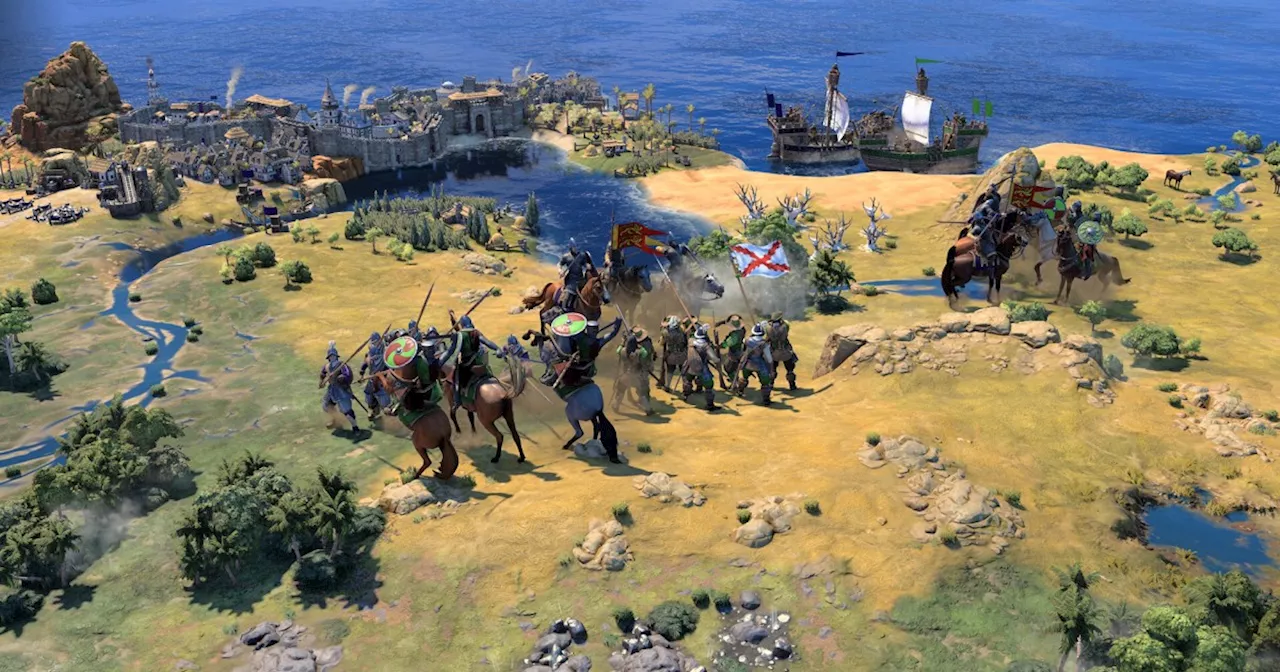An international team of researchers has uncovered evidence of a sophisticated agricultural system developed by the Casarabe civilization in Bolivia's Llanos de Moxos. Their mastery of landscape engineering allowed them to cultivate maize year-round, challenging long-held assumptions about Amazonian agriculture.
An international group of scholars has recently uncovered and confirmed the existence of a sophisticated agricultural system developed by a civilization in the Amazon . This discovery challenges long-held assumptions about large-scale monoculture agriculture, particularly in the region's challenging environment. The Casarabe people of Bolivia's Llanos de Moxos implemented innovative engineering techniques that dramatically increased their maize production, making it a staple of their diet.
'We can document that this is the first grain-based agrarian economy in the Amazon, where until now it was believed that agriculture was based on agroforestry polyculture and not on large-scale monocultures. Now we know that this was not the case in Llanos de Moxos,' says study author Umberto Lombardo.Llanos de Moxos, situated at the intersection of a savannah and the Amazon basin, experiences both seasonal flooding and extreme weather conditions, including heavy rainfall followed by prolonged droughts. Despite these challenges, the Casarabe civilization thrived between 500 AD and 1400 AD, mastering the regulation of water resources through ingenious landscape management techniques. They constructed drainage canals to divert excess water away from cultivated fields during the rainy season, preventing waterlogging. During the dry months, they utilized farm ponds as reservoirs, ensuring a consistent water supply for irrigation. This strategic approach enabled continuous maize cultivation, yielding at least two harvests annually.Lombardo's research contradicts prevailing notions about the Amazon rainforest's inability to support large-scale agricultural practices, leading to the belief that its inhabitants relied solely on slash-and-burn farming. Unlike the slash-and-burn techniques commonly associated with early Amazonian societies, the Casarabe people preserved surrounding forests, using them for firewood, medicinal plants, and other resources. They concentrated their farming efforts on seasonally flooded savannahs, demonstrating a sustainable approach to agriculture. Microbotanical analysis, conducted on 178 phytolith (plant microfossil) and pollen samples extracted from a farm pond, provided conclusive evidence of extensive maize cultivation. No traces of other domesticated crops were found, confirming the dominance of monoculture in their agricultural system.The Casarabe civilization's agricultural ingenuity offers valuable insights into the development of ancient civilizations and their ability to adapt to challenging environments. Their successful management of water resources, coupled with their focus on monoculture maize production, highlights the importance of landscape engineering in building sustainable agricultural systems. This discovery has implications beyond archaeology, providing inspiration for modern farming practices facing water scarcity and climate change. The Casarabe's dualistic water management system, involving both retention and removal techniques, presents a potential model for managing water resources in flood-prone or drought-stricken areas
Science History Casarabe Civilization Amazon Monoculture Maize Agriculture Water Management Llanos De Moxos
United States Latest News, United States Headlines
Similar News:You can also read news stories similar to this one that we have collected from other news sources.
 Julie de Libran's Couture Collection Channels Amazonian Warrior WomenJulie de Libran's latest couture collection draws inspiration from Amazonian warrior women, featuring lavish draped dresses, armor-like details, and a sense of strength and empowerment. The collection, dedicated to the late actress and model Dayle Haddon, utilizes sustainable fabrics and incorporates elements of medieval and contemporary aesthetics.
Julie de Libran's Couture Collection Channels Amazonian Warrior WomenJulie de Libran's latest couture collection draws inspiration from Amazonian warrior women, featuring lavish draped dresses, armor-like details, and a sense of strength and empowerment. The collection, dedicated to the late actress and model Dayle Haddon, utilizes sustainable fabrics and incorporates elements of medieval and contemporary aesthetics.
Read more »
 Civilization VII: An Early Look at Expansion and ExterminationThis preview explores the early gameplay of Civilization VII, focusing on the core mechanics of exploration, expansion, and warfare. The author details their experience playing as Persia, transitioning into Mongolia, and conquering most of their starting continent. The preview highlights the game's intuitive tutorials, legacy path system, and aggressive military focus.
Civilization VII: An Early Look at Expansion and ExterminationThis preview explores the early gameplay of Civilization VII, focusing on the core mechanics of exploration, expansion, and warfare. The author details their experience playing as Persia, transitioning into Mongolia, and conquering most of their starting continent. The preview highlights the game's intuitive tutorials, legacy path system, and aggressive military focus.
Read more »
 Milei Slams 'Woke Ideology' as 'Cancer' Threatening Western Civilization at DavosArgentinian President Javier Milei delivered a fiery speech at the World Economic Forum in Davos, denouncing 'woke ideology' as a dangerous force undermining Western values and societal well-being.
Milei Slams 'Woke Ideology' as 'Cancer' Threatening Western Civilization at DavosArgentinian President Javier Milei delivered a fiery speech at the World Economic Forum in Davos, denouncing 'woke ideology' as a dangerous force undermining Western values and societal well-being.
Read more »
 Milei Blasts 'Woke Ideology' at Davos, Calls It a 'Cancer' Threatening Western CivilizationArgentine President Javier Milei delivered a fiery speech at the World Economic Forum in Davos, denouncing 'woke ideology' as a dangerous virus that threatens the values and progress of Western civilization. He criticized left-wing policies, particularly on gender issues, and argued that woke ideology is a form of child abuse. Milei also expressed optimism about Argentina's future under his leadership, but warned of the global threat posed by wokeism.
Milei Blasts 'Woke Ideology' at Davos, Calls It a 'Cancer' Threatening Western CivilizationArgentine President Javier Milei delivered a fiery speech at the World Economic Forum in Davos, denouncing 'woke ideology' as a dangerous virus that threatens the values and progress of Western civilization. He criticized left-wing policies, particularly on gender issues, and argued that woke ideology is a form of child abuse. Milei also expressed optimism about Argentina's future under his leadership, but warned of the global threat posed by wokeism.
Read more »
 Peru's Best-Preserved Elite Burial Reveals Insights into Moche CivilizationThe excavation of the Huaca Cao Viejo at El Brujo archaeological complex in Peru has uncovered the best-preserved elite burial, offering unprecedented glimpses into the customs and rituals of the Moche civilization. The discovery includes evidence of human sacrifice, with two youths strangled and buried with their older relatives, suggesting a practice reserved for the upper class. The six individuals, belonging to a single family with varying degrees of kinship, were buried in a pyramid-like temple, highlighting their political influence. This site provides the first evidence of familial sacrifice and sheds light on the complex societal structure of the Moche, revealing a softer side to ritual killing.
Peru's Best-Preserved Elite Burial Reveals Insights into Moche CivilizationThe excavation of the Huaca Cao Viejo at El Brujo archaeological complex in Peru has uncovered the best-preserved elite burial, offering unprecedented glimpses into the customs and rituals of the Moche civilization. The discovery includes evidence of human sacrifice, with two youths strangled and buried with their older relatives, suggesting a practice reserved for the upper class. The six individuals, belonging to a single family with varying degrees of kinship, were buried in a pyramid-like temple, highlighting their political influence. This site provides the first evidence of familial sacrifice and sheds light on the complex societal structure of the Moche, revealing a softer side to ritual killing.
Read more »
 Mel Gibson Talks Collapse of LA Civilization After Wildfires on Joe Rogan's PodcastThe actor said that he would 'be surprised' if his home in Malibu was still standing as the fires continued to burn.
Mel Gibson Talks Collapse of LA Civilization After Wildfires on Joe Rogan's PodcastThe actor said that he would 'be surprised' if his home in Malibu was still standing as the fires continued to burn.
Read more »
